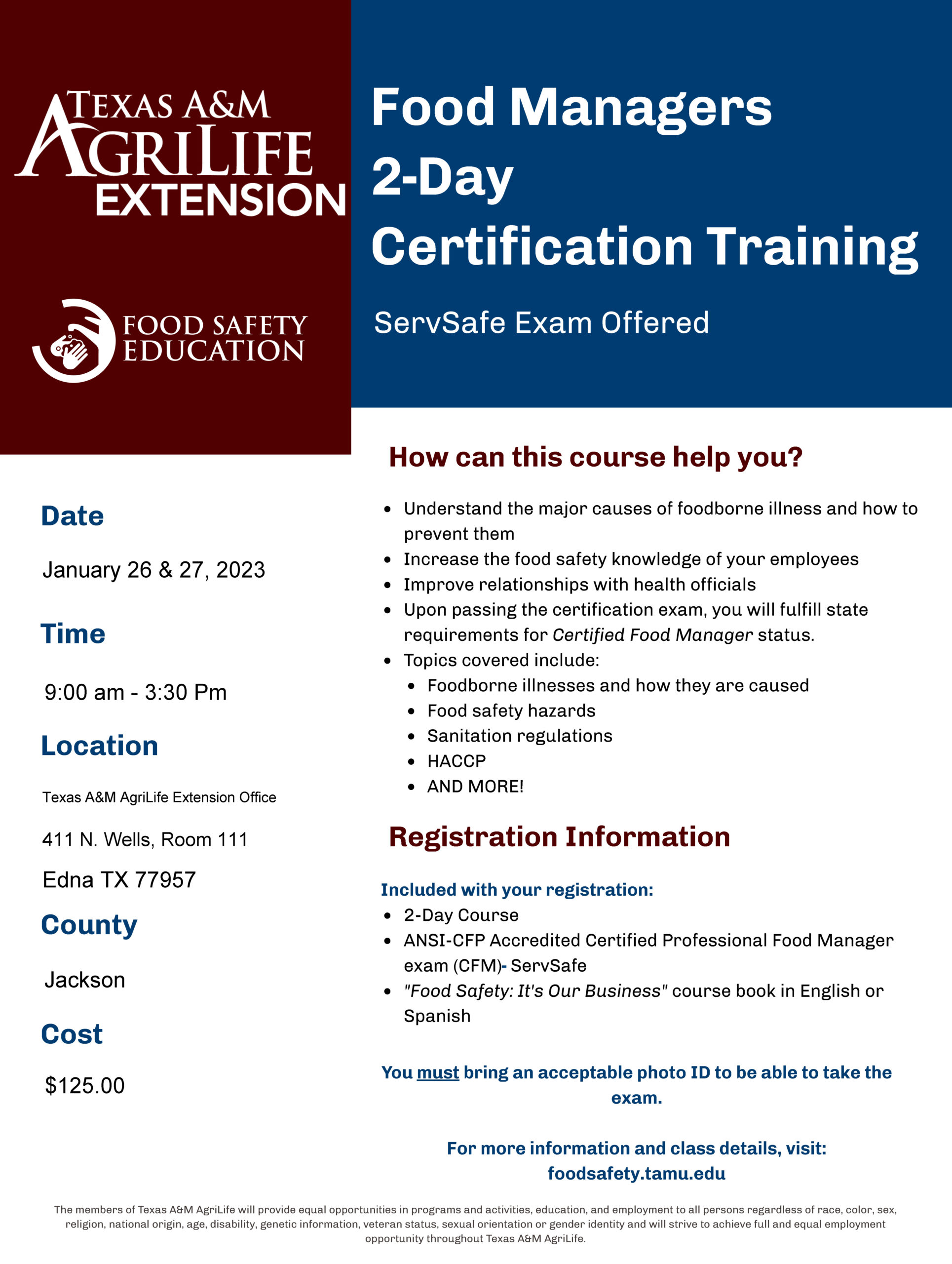What to Expect in the ServSafe Food Manager Certification Test
What to Expect in the ServSafe Food Manager Certification Test
Blog Article
Exactly How to Obtain Your Food Manager Accreditation Quickly
Obtaining your Food Manager Accreditation effectively requires a systematic strategy, starting with an extensive understanding of the specific demands in your location. Numerous people ignore important aspects that can further accelerate this process, which might significantly influence their certification journey.
Research Study Certification Requirements

Ambitious food supervisors ought to first determine which accreditations are acknowledged and requisite in their territory. This typically requires reviewing regional regulations and laws that determine food safety techniques and the credentials needed for managerial settings. Additionally, recognizing the eligibility requirements, such as prior experience in food service or related areas, is crucial.

Select a Reliable Training Program
Picking the best training program is an essential step after identifying the certification demands in your location. The efficiency of your training can substantially affect your understanding of food safety concepts, which are vital for passing the accreditation test. Begin by researching programs recognized by trusted organizations, such as the American National Requirement Institute (ANSI), as these normally comply with industry criteria.
Think about the training layout that finest matches your learning design. Review the curriculum to guarantee it covers key topics such as foodborne illnesses, cleanliness, and risk-free food handling practices.
Check for evaluations and testimonies from previous participants to gauge the program's effectiveness. In addition, ask concerning the credentials of the instructors, as experienced fitness instructors can offer beneficial understandings. Verify that the program includes detailed products and sources to help in your learning. By very carefully choosing a training program that straightens with your demands, you can enhance your prep work for the food supervisor accreditation exam.

Get Ready For the Exam

Use research study materials that straighten with the test's structure. Lots of companies supply study guides and technique examinations, which can be vital in evaluating your understanding and readiness. Involve in active learning strategies, such as flashcards or team conversations, to enhance retention of crucial details.
In addition, think about participating in review programs or workshops that provide in-depth insurance coverage of necessary subjects. These sessions often include professional understandings that can make clear complicated principles and enhance your understanding.
Schedule Your Examination Day
Selecting the correct time to arrange your exam day is a crucial step in the accreditation procedure. Choosing an ideal day enables you to allocate sufficient time for prep work while stabilizing various other personal and professional commitments. Consider your present work and any type of approaching occasions that might sidetrack you from concentrated research.
Objective to schedule your exam after completing your preparatory coursework and technique examinations. This ensures you feel great in your expertise and abilities. Furthermore, consider arranging your test for a day when you are normally at your most sharp and focused, as mental clarity can dramatically influence performance.
It is likewise smart to examine the accessibility of test ports in your area, as some locations may have restricted openings. Arranging your test well ahead of time can aid you safeguard a recommended time and place. Be mindful of the accreditation's expiry policies, as picking a day as well much in the future may lead to a lapse in your expertise.
Eventually, the goal is to find an equilibrium between readiness and accessibility, ensuring you approach your exam with confidence and a strong foundation of understanding.
Maintain Your Qualification
Preserving your certification is crucial for ensuring continuous skills and conformity in food monitoring methods. Accreditation commonly needs renewal every 3 to 5 years, depending upon the issuing organization. To remain existing, it is Food Manager Certification crucial to understand the specific revival needs of your qualification body, as they may vary.
Continuing education and learning is a key component of keeping your accreditation (Food Manager Certification). Taking part in workshops, seminars, or on-line programs connected to food administration, safety and security, and hygiene methods not only boosts your knowledge however may also meet revival requirements. In addition, several qualification organizations use sources and training sessions to help you remain educated about the current industry requirements and guidelines
Exercising excellent food management within your office is just as important. Frequently using your expertise and abilities enhances your skills and may supply documentation that shows adherence to best methods.
Lastly, maintain track of your qualification's expiration date and any type of required documents for the renewal procedure - ServSafe Manager. Proactively managing these components will make certain that you preserve your qualification without disturbance, permitting you to continue offering efficient and risk-free food monitoring in your specialist setting
Final Thought
Attaining Food Supervisor Qualification efficiently requires a critical approach that consists of extensive research study of local requirements, choice of a proper training program, and persistent prep work for the assessment. Timely scheduling of the exam adhering to completion of training is vital to avoid unneeded hold-ups. In addition, staying notified concerning renewal requirements guarantees the maintenance of qualification condition. By adhering to these detailed actions, individuals can effectively navigate the accreditation procedure and enhance their professional qualifications in food administration.
The path to acquiring food supervisor qualification is not uniform; it varies dramatically depending on local regulations and the specific certification program selected. The efficiency of your training can substantially affect your understanding of food security concepts, which are vital for passing the qualification examination. By carefully choosing a training program that lines up with your requirements, you can boost your preparation for the food manager accreditation examination.
Comprehensive preparation is necessary for success on the food supervisor certification exam.Accomplishing Food Supervisor Certification effectively demands a critical strategy that consists of complete research of regional demands, choice of an ideal training program, and attentive prep work for the examination.
Report this page